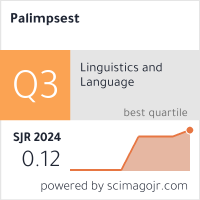THE NARCISSISM OF MINOR DIFFERENCES AND BALKANIZATION
DOI:
https://doi.org/10.46763/PALIM251019149kAbstract
Sigmund Freud (1918) defines the 'narcissism of minor differences' as an extreme intolerance among the closest family members or among related and neighboring peoples/nations. The excessive, pathological form of narcissism (self-love, egocentricity, megalomania) fosters rivalry, animosity, antagonism, identity extremism, verbal and bloody conflicts among peoples, including among religious, linguistic, and other communities (cultural, political, gender, racial). This paper examines the narcissistic relationships among related and neighboring peoples and cultures in the territories of the former Yugoslav federation and the Balkans. The narcissism of small differences among related and neighboring peoples is biased and accompanied by toxic narratives and toxic rhetoric. Narcissistic imagology is subjective both when it comes to self-perception and when it comes to the perception of the Other. It leads to nationalism and chauvinism, and this is a prelude to numerous civil conflicts and wars. Therefore, the narcissism of small differences should be a serious indication of a possible change in the existing regional geopolitical map. It has been and still is a factor in the destabilization and disintegration of various state entities, federations, and empires. In the small states formed after the dissolution of former Yugoslavia, the narcissism of small differences has spread regarding peoples who were not part of the federation. Such is the Macedonian case which, after independence, opened up towards neighboring peoples (Greek, Bulgarian), and internally deepened the mistrust between the Macedonian people and the Albanian community. One of the manifestations of the narcissism of small differences is cultural narcissism. It promotes biased, problematic, and absurd interpretations of history, challenges the ethnic and linguistic identity of the neighbor, questions the historical continuity and national legitimacy on an international level. Such a narcissistic approach advocates not only discreet, but also explicit cultural hegemony.
Keywords: narcissism of small/minor differences; cultural narcissism; narcissistic imagology; toxic narratives; Yugoslavia; Balkanization.
Downloads
Downloads
Published
Issue
Section
License
The intellectual property and copyright on the original content of all scientific contributions in the published paper shall remain with the authors. Authors give permission to the JAPS owner to publish the paper. All authors agree to publish the paper under Attribution-NonCommercial-NoDerivatives 4.0 International license (CC BY-NC-ND 4.0)


